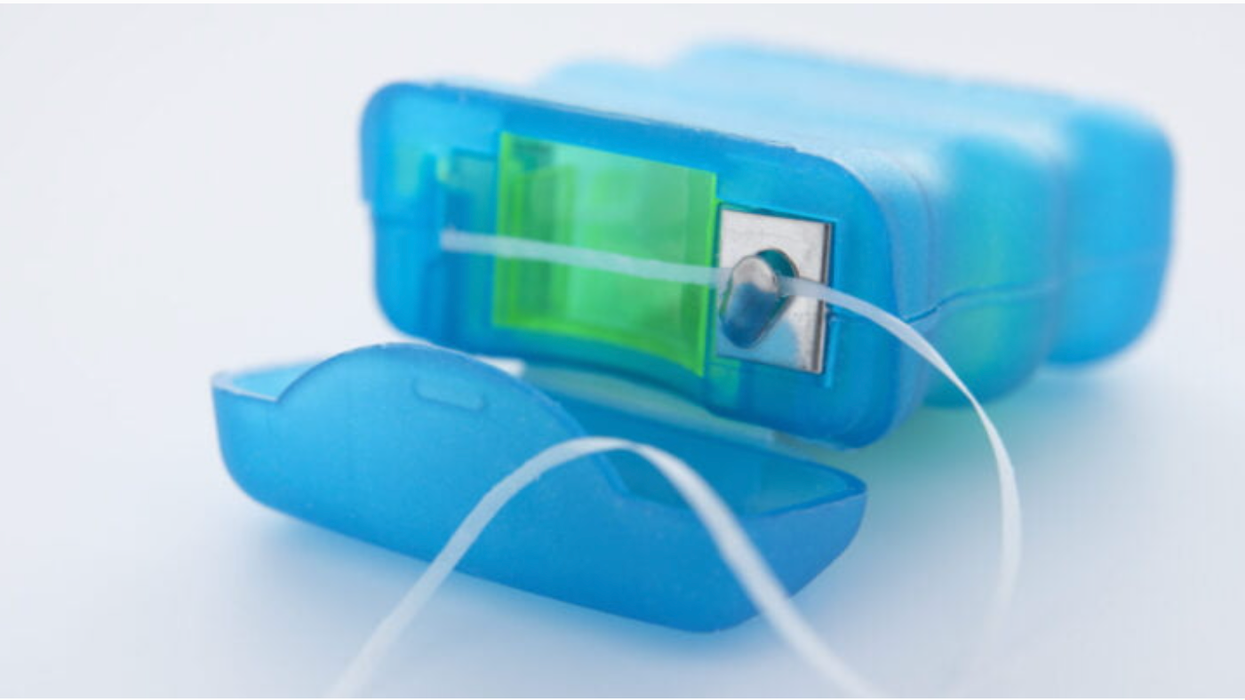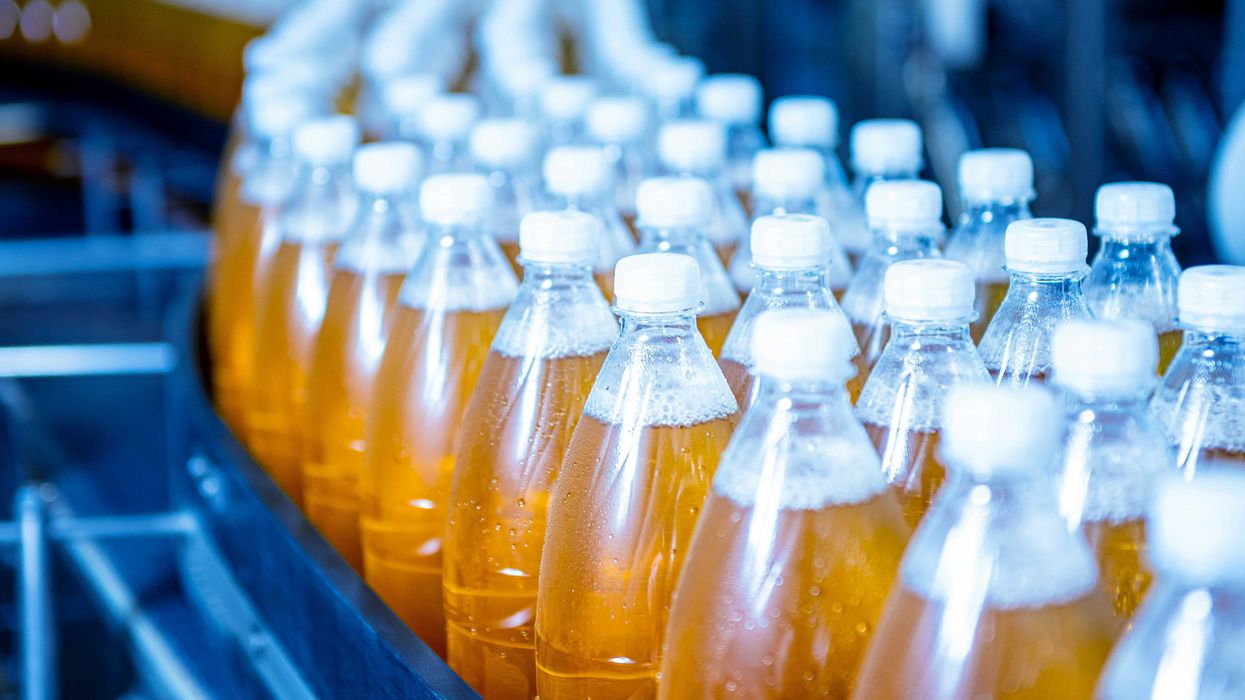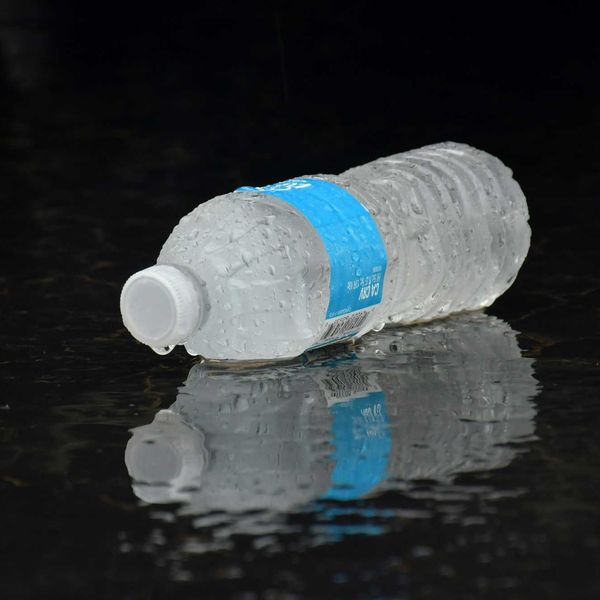That nice waxy glide as you floss your teeth? Turns out it could be courtesy of PFAS, the "forever chemicals" that hijacks hormones and is linked to reproductive problems, birth defects, testicular cancer and a host of other diseases.
Mamavation, the wellness site, and EHN.org tested 39 different brands of floss for PFAS and found evidence of the chemical in one third of the samples. Levels ranged from 11 parts per million, or ppm, to 248,900 ppm.
Four products had more than 70,000 ppm, or 7 percent, PFAS, with Oral-B Glide testing at 248,900 ppm, or nearly 25 percent.
"None of these contaminants are something our readers want in their products," Mamavation founder Leah Segedie wrote.
PFAS is a family of nearly 12,000 chemicals used to make products, like Teflon, slippery. It's also found in stain-resistant carpeting and fabrics, cosmetics and firefighting foam.
PFAS are in the blood of nearly all Americans, and testing of umbilical cord blood and breast milk indicates that exposure begins before birth. Some PFAS bioaccumulate — build up — which means even low exposures are cause for concern over time as our bodies accumulate more and more of them.
Companies and trade associations like the American Dental Association should "stop approving of any dental product that contains any forever PFAS compound," said Terry Collins, Teresa Heinz Professor of Green Chemistry & Director of Institute for Green Sciences at Carnegie Mellon University.
"They should start educating their members about the insidious nature of low dose adverse effects from endocrine-disrupting chemicals."
Companies pushed back on the test results, with Oral-B telling Health.com that "none of the substances in the report are used in our dental floss. The safety of the people who use our products is our top priority. Our dental floss undergoes thorough safety testing and we stand behind the safety of all our products.”
PFAS Investigation

EHN.org and Mamavation have teamed up to test ordinary products for evidence of the "forever chemical," finding it in everything from sports bras to toilet paper.
You can explore the reporting, "PFAS on our shelves and in our bodies," here.
The ongoing investigation of PFAS in everyday products has uncovered evidence of the toxics in our clothes, food and makeup— including in many so-called “green” and “organic” brands.
While many are aware of PFAS pollution in water, the testing finds that we’re also exposed by the things we wear or eat. The testing highlights the dangerous unknowns in many U.S. supply chains, as many brands are not intentionally adding PFAS, short for per- and polyfluoroalkyl substances, which contribute to cancer, reproductive and immune systems damages, elevated cholesterol and other health issues.
It’s not all bad news: many products tested clean. In this guide you can quickly find PFAS-free products and those that were contaminated.
Better flossing products
Mamavation's floss report ranked products by category – "Not our favorite," "Better" and "Best" – with smaller, "eco" companies like Tom's of Maine, the Humble Co., and Desert Essence falling into the latter.
Mamavation also tested several flosses marketed for children and found no evidence of PFAS in any samples.
Should you stop flossing? "Absolutely not," Segedie said. Dentists recommend flossing to keep teeth free from food debris, decay, dental plaque, gingivitis, periodontal disease, gum disease and bad breath.
The results suggest companies, trade groups and regulators need to take a more conservative approach in approving and using chemicals in consumer products, Collins said.
"The ADA needs to understand that the seductions of chemicals with high technical and cost performances, like most PFAS compounds, have to be resisted until the health, environmental and fairness performances have been quantified and assessed and integrated into the value proposition," Collins said. "From where I am looking, all PFAS compounds will fail competent scrutiny in this area."
Read more product test results from the Mamavation and EHN.org investigation.
- Op-ed: PFAS chemicals—the other immune system threat - EHN ›
- What are PFAS? - EHN ›
- Evidence of PFAS found in tampons — including organic brands - EHN ›
- Where did the PFAS in your blood come from? These computer models offer clues - EHN ›
- Testing find glyphosate in two popular oat milks - EHN ›
- Are you replenishing your electrolytes with a dose of PFAS? - EHN ›
- PFAS chemicals on your baby’s diapers - EHN ›
- PFAS may reduce the nutritional quality of breast milk - EHN ›
- Keep PFAS out of your sex life - EHN ›
- Are you putting PFAS on your armpits? - EHN ›

























